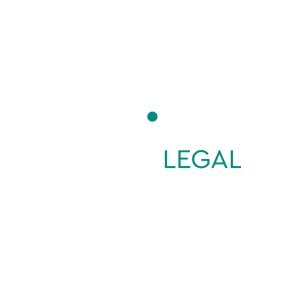Best Financial Services Regulation Lawyers in Mauritius
Share your needs with us, get contacted by law firms.
Free. Takes 2 min.
Or refine your search by selecting a city:
List of the best lawyers in Mauritius
About Financial Services Regulation Law in Mauritius
Financial Services Regulation in Mauritius is governed by a robust legal framework aimed at maintaining the integrity, security, and stability of its financial system. The jurisdiction has positioned itself as a reputable International Financial Centre in the region, with regulatory oversight primarily provided by the Financial Services Commission (FSC) and the Bank of Mauritius. Financial services in Mauritius include banking, insurance, investment funds, global business, and other financial intermediation services, all of which are regulated under various laws to ensure transparency, accountability, and protection for investor interests.
Why You May Need a Lawyer
Engaging a lawyer specializing in Financial Services Regulation can be critical in several situations. This includes structuring complex financial transactions, ensuring compliance with local and international regulatory standards, navigating licensing requirements, or resolving disputes with regulatory bodies. Lawyers can also assist in identifying potential regulatory risks and providing strategic advice for financial institutions and businesses. Given the complexities of financial regulations that often overlap with international standards, professional legal guidance ensures proper adherence to the law while facilitating business operations.
Local Laws Overview
Mauritius's financial services are governed by several key pieces of legislation, including the Financial Services Act, the Banking Act, the Insurance Act, and the Securities Act. These laws set the standards for licensing, operation, and regulation of financial entities and services. The Financial Services Commission and the Bank of Mauritius are the principal regulatory authorities responsible for implementing these regulations. They ensure that financial entities comply with relevant laws by conducting regular audits, issuing guidelines, and enforcing penalties for non-compliance. Other specific ordinances and guidelines cover areas such as Anti-Money Laundering (AML), combating the financing of terrorism (CFT), data protection, and customer due diligence.
Frequently Asked Questions
1. What is the role of the Financial Services Commission in Mauritius?
The Financial Services Commission (FSC) is the regulatory authority in Mauritius responsible for non-bank financial services including insurance, securities, and the global business sector. It ensures a fair, efficient, and transparent financial market.
2. Are there specific licensing requirements for financial companies in Mauritius?
Yes, financial companies need to obtain licenses from the relevant regulatory bodies such as the FSC or the Bank of Mauritius, depending on their area of operation. The process involves meeting specific criteria and complying with local laws.
3. How does Mauritius ensure compliance with international financial regulations?
Mauritius aligns its regulations with international standards and best practices set by organizations like the Financial Action Task Force (FATF). It has comprehensive laws on AML and CFT and regularly updates its regulatory framework.
4. What are the penalties for non-compliance with financial regulations in Mauritius?
Penalties can range from fines, revocation of licenses, restricted operations, to imprisonment for severe breaches. The penalty depends on the nature and seriousness of the non-compliance.
5. Can foreign financial companies operate in Mauritius?
Yes, foreign financial companies can operate in Mauritius but must comply with local licensing and regulatory requirements. Mauritius is an attractive location for foreign businesses due to its strategic position and favorable regulatory environment.
6. What is a Global Business License in Mauritius?
A Global Business License (GBL) is required by companies intending to conduct business primarily outside Mauritius. It allows such companies to benefit from the island's tax treaty network and other fiscal incentives.
7. How can businesses in Mauritius protect themselves from financial fraud?
Businesses should implement robust internal controls, conduct regular audits, maintain compliance with AML regulations, and seek legal advice to create a comprehensive fraud prevention strategy.
8. What is the dispute resolution process in financial regulation in Mauritius?
Disputes can be resolved through negotiation, adjudication by the regulatory authorities, or through the court system. Mauritius also has arbitration facilities for alternative dispute resolution.
9. How does Mauritius protect the interests of financial consumers?
Consumer protection is enshrined in financial regulations, requiring transparency, accountability, and fair dealing by financial institutions. Entities must provide adequate information and maintain business conduct standards.
10. Are there specific reporting obligations for financial entities in Mauritius?
Yes, financial entities must regularly report their financials, risk assessments, and compliance status to the FSC or the Bank of Mauritius. These reports are crucial to maintain transparency and regulatory compliance.
Additional Resources
For further assistance and information regarding financial services regulation in Mauritius, consider contacting or visiting the following resources:
- Financial Services Commission (FSC), Mauritius - Bank of Mauritius - Mauritius Revenue Authority (for fiscal regulations) - Mauritius Financial Development Promotion Agency - Government of Mauritius official website
Next Steps
If you require legal assistance in financial services regulation, it is advisable to consult with a lawyer who specializes in this field. Start by researching and identifying law firms or independent attorneys experienced in financial regulations in Mauritius. Prepare a list of questions and documents relevant to your situation, and schedule a consultation to explore your options. Legal directories and bar association listings could also provide referrals to reputable legal professionals.
Lawzana helps you find the best lawyers and law firms in Mauritius through a curated and pre-screened list of qualified legal professionals. Our platform offers rankings and detailed profiles of attorneys and law firms, allowing you to compare based on practice areas, including Financial Services Regulation, experience, and client feedback.
Each profile includes a description of the firm's areas of practice, client reviews, team members and partners, year of establishment, spoken languages, office locations, contact information, social media presence, and any published articles or resources. Most firms on our platform speak English and are experienced in both local and international legal matters.
Get a quote from top-rated law firms in Mauritius — quickly, securely, and without unnecessary hassle.
Disclaimer:
The information provided on this page is for general informational purposes only and does not constitute legal advice. While we strive to ensure the accuracy and relevance of the content, legal information may change over time, and interpretations of the law can vary. You should always consult with a qualified legal professional for advice specific to your situation.
We disclaim all liability for actions taken or not taken based on the content of this page. If you believe any information is incorrect or outdated, please contact us, and we will review and update it where appropriate.
Browse financial services regulation law firms by city in Mauritius
Refine your search by selecting a city.

















